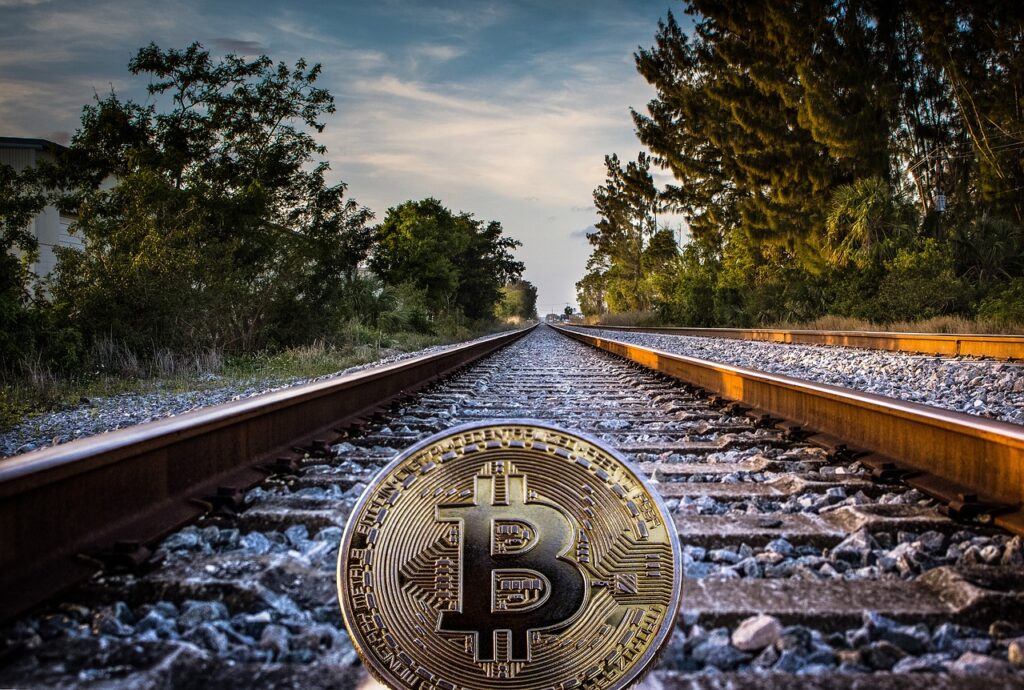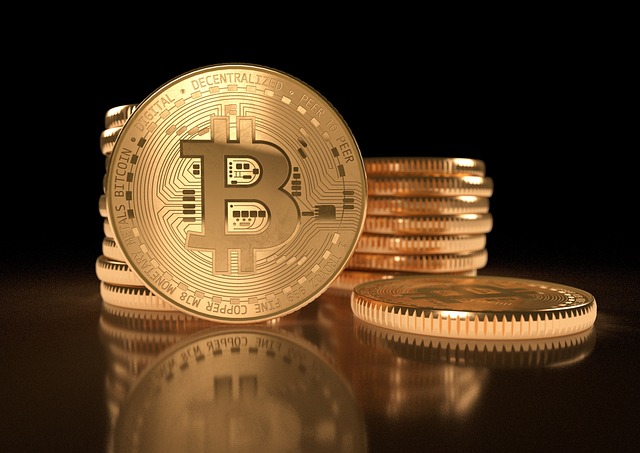Navigating the Pros and Cons of Decentralized Finance for Beginners
Navigating the Pros and Cons of Decentralized Finance for Beginners

What is Decentralized Finance and why is it gaining popularity?
Decentralized finance, commonly referred to as DeFi, is an emerging trend in the world of finance that is rapidly gaining popularity. Essentially, it is a form of finance that leverages blockchain technology and smart contracts to eliminate the need for intermediaries such as banks or government institutions. Instead, transactions are executed directly between users, making the process more efficient, transparent, and accessible to anyone with an internet connection.
One of the main reasons why DeFi is becoming increasingly popular is its potential to democratize finance. Traditional financial systems often exclude or disadvantage certain individuals or regions, particularly those with limited access to banks or who face high transaction fees. DeFi, on the other hand, allows anyone, regardless of their background or location, to participate in financial activities such as lending, borrowing, or investing. This level playing field not only empowers individuals but also opens up a world of opportunities for those who were previously excluded from traditional financial services.
Understanding the key principles behind Decentralized Finance.
Decentralized Finance (DeFi) is an innovative concept that has been steadily gaining popularity in recent years. Unlike traditional financial systems that rely on central authorities like banks, DeFi is built on blockchain technology and operates in a decentralized manner. The key principles behind DeFi revolve around eliminating intermediaries, promoting transparency, and providing equal access to financial services for everyone.
One of the fundamental principles of DeFi is the removal of middlemen, such as banks or financial institutions, from the equation. Instead, smart contracts and decentralized applications (DApps) are used to facilitate transactions and provide various financial services. This peer-to-peer approach not only cuts out unnecessary fees but also reduces the potential for fraud and manipulation.
Transparency is another key principle of DeFi. All transactions and operations on the blockchain are visible to the public, ensuring that there is no hidden manipulation or unfair practices. This transparency not only enhances trust among participants but also enables individuals to audit and verify the integrity of the system.
Furthermore, DeFi aims to provide financial services to individuals who are underserved or excluded from traditional financial systems. By utilizing blockchain technology, DeFi platforms can reach a global audience, offering everyone the opportunity to access loans, invest in assets, or participate in various financial activities.
Understanding these key principles is vital in grasping the potential benefits and risks associated with DeFi.
Exploring the potential benefits of Decentralized Finance for beginners.
Decentralized Finance (DeFi) has been making waves in the financial industry, offering a range of potential benefits for beginners who are looking for alternative ways to manage their finances. One of the notable benefits of DeFi is its permissionless nature, which means that anyone with an internet connection can participate in the ecosystem without needing approval from intermediaries like banks. This opens up new opportunities for individuals who may have been excluded from traditional financial services due to various reasons such as geographical location or lack of access to necessary documentation.
Another key benefit of DeFi is its ability to provide financial services at a lower cost compared to traditional systems. By removing the need for intermediaries, DeFi platforms can significantly reduce fees associated with transactions, loans, and other financial activities.

The risks and challenges associated with Decentralized Finance.
As with any financial system, decentralized finance (DeFi) is not without its risks and challenges. One of the key concerns revolves around the technical vulnerabilities of the smart contracts that underpin the DeFi platforms. Although these contracts are designed to be secure, they are not immune to bugs or coding errors. Such vulnerabilities can be exploited by hackers, resulting in significant financial losses for users. Therefore, it is crucial for individuals engaging in DeFi to thoroughly research and assess the security measures implemented by the platforms they choose to use.
Another challenge associated with DeFi is the lack of regulation and oversight. Unlike traditional financial institutions that are subject to various regulatory frameworks, DeFi operates in a decentralized and unregulated manner. While this allows for greater flexibility and accessibility, it also exposes users to potential scams, fraudulent activities, and market manipulation. Due diligence becomes paramount in navigating the DeFi space, as users must be vigilant in identifying reliable platforms and projects. Furthermore, the absence of regulatory protection means that if something goes wrong, there is limited assistance or recourse available to affected individuals. This highlights the importance of understanding the inherent risks and exercising caution when participating in the DeFi ecosystem.
How to get started with Decentralized Finance: A beginner’s guide.
When it comes to getting started with Decentralized Finance (DeFi), it’s important to understand the basics before diving in. DeFi refers to an ecosystem of financial applications and services that are built on blockchain technology. These platforms aim to provide users with decentralized alternatives to traditional financial intermediaries, such as banks and brokers.
To begin your journey into DeFi, the first step is to familiarize yourself with cryptocurrencies. Cryptocurrencies are digital assets that operate on a blockchain network and can be used for various purposes, including decentralized lending, borrowing, and trading. Some popular cryptocurrencies you might come across in the DeFi space include Bitcoin (BTC), Ethereum (ETH), and Binance Coin (BNB). It’s advisable to start by researching and familiarizing yourself with these cryptocurrencies and their use cases.

Different types of Decentralized Finance platforms and their features.
Decentralized finance platforms offer a wide range of options for users to explore and participate in the world of digital finance. One popular type of platform is the decentralized lending and borrowing platforms. These platforms allow individuals to lend out their crypto assets and earn interest on their holdings, or borrow funds by using their existing assets as collateral. This opens up new opportunities for individuals to access liquidity without relying on traditional banking institutions.
Another type of decentralized finance platform is the decentralized exchange (DEX). Unlike traditional centralized exchanges, DEXs eliminate the need for intermediaries and allow users to trade digital assets directly from their wallets. This not only provides users with greater control over their funds but also enhances privacy and security. In addition, some DEXs also offer features like yield farming and liquidity mining, allowing users to earn additional rewards by providing liquidity to the platform. Overall, these different types of decentralized finance platforms offer a new way for individuals to engage with the world of digital finance, providing innovative solutions and greater financial autonomy.
Exploring the various investment opportunities in Decentralized Finance.
When it comes to exploring investment opportunities in Decentralized Finance (DeFi), there is no shortage of options for eager investors. This disruptive sector offers a wide range of innovative financial products and services that can potentially yield significant returns for those willing to navigate the decentralized landscape.
One of the most popular investment opportunities in DeFi is through lending and borrowing platforms. With these platforms, investors can lend their digital assets and earn interest on their holdings, or borrow funds by using their assets as collateral. This allows individuals to profit from their idle assets or obtain liquidity without going through the traditional banking system. Additionally, decentralized exchanges (DEXs) provide opportunities for investors to trade cryptocurrencies directly with each other, eliminating the need for intermediaries and enabling fast and secure transactions. The potential for high returns, coupled with the ability to trade various digital assets, makes DeFi an enticing avenue for adventurous investors seeking new opportunities in the world of finance.
Tips and strategies for managing risks in Decentralized Finance.
As with any financial endeavor, managing risks is crucial when it comes to participating in the world of Decentralized Finance (DeFi). While DeFi offers exciting opportunities, it’s important to approach it with caution and a well-thought-out plan. Here are some tips and strategies to help you navigate the potential risks associated with DeFi.
Firstly, always do thorough research before diving into any DeFi project or platform. Look into the team behind the project, their previous experience, and the overall credibility of the platform. This will help you make an informed decision and avoid falling into fraudulent schemes or poorly executed projects. Additionally, it’s essential to understand the smart contracts and protocols used in DeFi. Familiarize yourself with the code, conduct audits if possible, and comprehend the risks associated with potential vulnerabilities. By understanding the underlying technology, you can better assess the risks and make informed decisions.
• Thoroughly research the team behind a DeFi project or platform
• Look into their previous experience and credibility
• Avoid fraudulent schemes or poorly executed projects
• Understand the smart contracts and protocols used in DeFi
• Familiarize yourself with the code and conduct audits if possible
• Comprehend the risks associated with potential vulnerabilities
Another important strategy for managing risks in DeFi is diversification. Instead of putting all your funds into one project, consider spreading them across multiple platforms. This way, if one project fails or experiences a security breach, you won’t lose all your assets. Diversifying also allows you to take advantage of different opportunities within the DeFi space and potentially mitigate losses.
Additionally, it’s crucial to stay updated on industry news and developments. The world of DeFi is constantly evolving, and new projects are emerging regularly. By staying informed about market trends, regulatory changes, and any potential red flags related to specific platforms or projects, you can make more educated decisions regarding where to allocate your funds.
Furthermore, always be mindful of security measures when participating in DeFi. Use hardware wallets instead of storing your assets on centralized exchanges that may be vulnerable to hacking attempts. Enable two-factor authentication whenever possible and regularly update your passwords.
Lastly, start small when entering the world of DeFi. It’s easy to get caught up in the excitement and invest significant amounts right away but taking a cautious approach is advisable.

In conclusion, managing risks is essential when participating in Decentralized Finance (DeFi). By conducting thorough research before investing, understanding smart contracts and protocols used in various projects/platforms while diversifying investments can help mitigate potential losses significantly. Staying updated on industry news along with implementing strong security measures will further enhance risk management strategies for individuals venturing into this exciting field.
Understanding the role of cryptocurrencies in Decentralized Finance.
Cryptocurrencies play a crucial role in decentralized finance (DeFi) by providing a reliable and secure medium of exchange. Unlike traditional fiat currencies that are controlled by centralized authorities like banks and governments, cryptocurrencies are based on blockchain technology. This decentralized nature ensures transparency, immutability, and eliminates the need for intermediaries. By using cryptocurrencies in DeFi, users can conduct peer-to-peer transactions seamlessly and securely, without the involvement of third parties. This not only reduces transaction fees but also speeds up the process, making it an efficient option for financial activities.
In addition to being an effective medium of exchange, cryptocurrencies also enable various financial activities within the DeFi ecosystem. They can be used for borrowing and lending, trading, yield farming, and more. Smart contracts, which are powered by cryptocurrencies, automate and enforce the terms of agreements, eliminating the need for trust in traditional financial systems. With cryptocurrencies, individuals have greater control over their funds and can access a wider range of financial services directly from their digital wallets. As the DeFi space continues to evolve, cryptocurrencies will remain at the forefront, shaping the future of decentralized finance.
The future of Decentralized Finance: Opportunities and challenges ahead.
Decentralized Finance (DeFi) has emerged as a groundbreaking movement in the financial industry, offering a plethora of opportunities and challenges for the future. One of the key opportunities lies in the potential to democratize financial services, enabling access to individuals who are currently excluded from traditional banking systems. Through DeFi platforms, anyone with an internet connection can participate in lending, borrowing, and investing, without the need for intermediaries or geographical limitations. This disruptive nature of DeFi has the power to reshape the global financial landscape and increase financial inclusion worldwide.
However, along with the opportunities, DeFi also brings a set of challenges that need to be addressed as the technology evolves. One of the main challenges is the need for robust security measures to protect users’ funds and personal information. Since DeFi is built on blockchain technology, its security heavily relies on the underlying protocols and smart contracts. Any vulnerabilities or loopholes in the code can potentially lead to significant financial losses. Therefore, it is imperative for developers and users alike to continuously enhance security measures and conduct thorough audits to mitigate these risks. Additionally, regulatory frameworks and compliance standards must be developed to ensure consumer protection and prevent illicit activities within the DeFi space. As the industry matures, finding a balance between regulatory oversight and maintaining the decentralized nature of DeFi will be a challenge that needs to be navigated carefully.
What is Decentralized Finance and why is it gaining popularity?
Decentralized Finance, also known as DeFi, is a revolution in the financial industry that utilizes blockchain technology to provide financial services without the need for intermediaries like banks. It is gaining popularity because it offers greater financial inclusivity, transparency, and the potential for higher returns on investments.
What are the key principles behind Decentralized Finance?
The key principles behind DeFi include decentralization, open-source technology, transparency, and interoperability. These principles ensure that financial transactions and services are accessible to anyone, transparently executed, and can seamlessly interact with other platforms.
What are the potential benefits of Decentralized Finance for beginners?
Beginners can benefit from DeFi by accessing financial services without the need for a traditional bank account, earning higher interest rates on savings and investments, and having greater control over their own funds.
What are the risks and challenges associated with Decentralized Finance?
Some risks and challenges in DeFi include smart contract vulnerabilities, regulatory uncertainty, market volatility, and potential scams or fraudulent projects. It’s important to do thorough research, understand the risks, and only invest what you can afford to lose.
How can I get started with Decentralized Finance?
To get started with DeFi, you can begin by educating yourself about blockchain technology and cryptocurrencies, setting up a digital wallet, and exploring different DeFi platforms to understand their features and offerings. Start with a small investment to get familiar with the process.
What are the different types of Decentralized Finance platforms and their features?
There are various DeFi platforms, including decentralized lending and borrowing platforms, decentralized exchanges (DEXs), yield farming platforms, and decentralized asset management platforms. Each platform offers unique features and services, so it’s important to research and choose the one that aligns with your financial goals.
What are the various investment opportunities in Decentralized Finance?
Some investment opportunities in DeFi include lending out your cryptocurrencies to earn interest, participating in liquidity pools on DEXs, investing in decentralized stablecoins, and exploring yield farming opportunities. These options can potentially provide higher returns compared to traditional financial instruments.
Do you have any tips and strategies for managing risks in Decentralized Finance?
Absolutely! It’s crucial to diversify your investments, set clear risk management strategies, conduct thorough research on projects and teams, stay updated on market trends, and never invest more than you can afford to lose. Additionally, consider utilizing risk management tools and platforms offered within the DeFi ecosystem.
What role do cryptocurrencies play in Decentralized Finance?
Cryptocurrencies are the backbone of DeFi as they enable peer-to-peer financial transactions, lending, borrowing, and other financial services. Cryptocurrencies act as a medium of exchange, store of value, and can be used as collateral for loans within the decentralized finance ecosystem.
What does the future hold for Decentralized Finance?
The future of DeFi looks promising, with potential for further adoption and integration into mainstream finance. However, challenges such as regulatory issues and scalability need to be addressed. As technology advances, we can expect more innovative and user-friendly DeFi solutions to emerge, revolutionizing the financial industry.
Todays Featured Product:
Buy, exchange and grow your crypto securely with a Ledger hardware wallet, combined with the Ledger Live app. It’s never been easier to keep your crypto safe and accessible. Buy direct from Ledger.com and get todays Special Offers Here.




